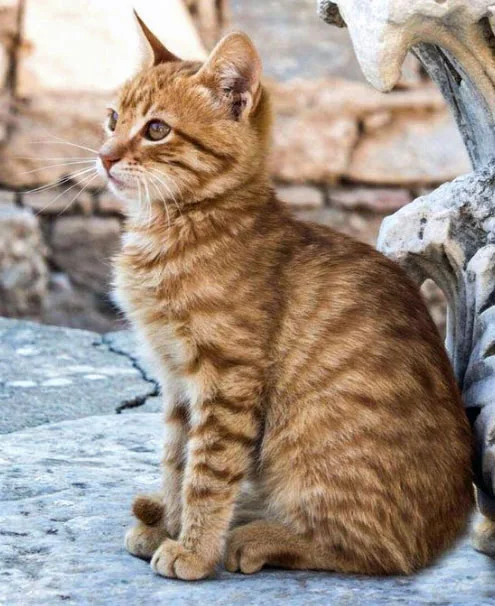 |
| Mackerel tabby stray cat. Pic in public domain. |
This is an extension of the discussion as to whether a domestic cat's personality is linked to their coat colour and pattern. There's been quite a a lot of discussion about that. In an earlier post I referred to Dr. John Bradshaw who, in his book Cat Sense, did state that sometimes genes which have a say in a cat's personality are physically quite close to genes which control the cat's coat type and colour. So it appears on occasions that there may be a link between coat and personality but it seems to be rather tenuous to me and uncommon. You might like to read that article in which I discuss this. Please click on the link below:
Cat personality linked to coat colour?
In this article I am looking at the assessment of a domestic cat's personality through a particular study.
I'm going to rely on the conclusions of a study by a PhD student at the University of California, Davis. Rebecca Morgan looked at various aspects of domestic cat personality but also whether there was a link between coat colour and type and behavioural characteristics.
She stated:
"The results of this study indicate that cats do exhibit individual differences in behavior that are quantifiable and predictable based on their owners’ subjective assessments."
There is nothing in that statement which tells us that a cat's coat type and colour, in general, is linked to their personality. It just states that domestic cats have their own personalities which we do fully understand. It does state that these differences are large enough to be measurable.
This is also something that we understand as cat owners. And assessments of domestic cat personality are going to be subjective. When people assess domestic cat personality it seems to me that it is impossible to do it entirely objectively. You are relying upon people to look at cat behaviour and then assess the individual as to their personality. Subjectivity is going to make the process less accurate. People tend to project their ideas about personality onto their cat.
A good example is another observation by Rebecca Morgan. She said that her study produced evidence that there are higher levels of shyness in cats that have a wilder appearance. From that she means that tabby cats (agouti gene cats) are being assessed as having a wilder appearance and also being shyer (wildness and shyness go together). She also states that tabby cats with a wilder appearance do not have the sex-linked orange pigmentation. So, she's referring to brown/grey tabby cats as being wilder.
Clearly, subjectivity has entered this assessment. I'm not able to read the entire dissertation but I'm confident that people assess tabby cats as potentially wilder than non-tabby cats because the original domestic cats were domesticated wild cats. The North African wildcat has a tabby-type coat. The link is there. People are perceiving the North African wildcat in their tabby domestic cat. And from that starting point they are allowing their imaginations to decide that a tabby cat is wilder than a non-tabby cat.
Solid-coloured cats and bicolour cats look more domesticated. If they look more domesticated, they are more domesticated, is, I guess, the thought process.



No comments:
Post a Comment
Your comments are always welcome.
Note: only a member of this blog may post a comment.